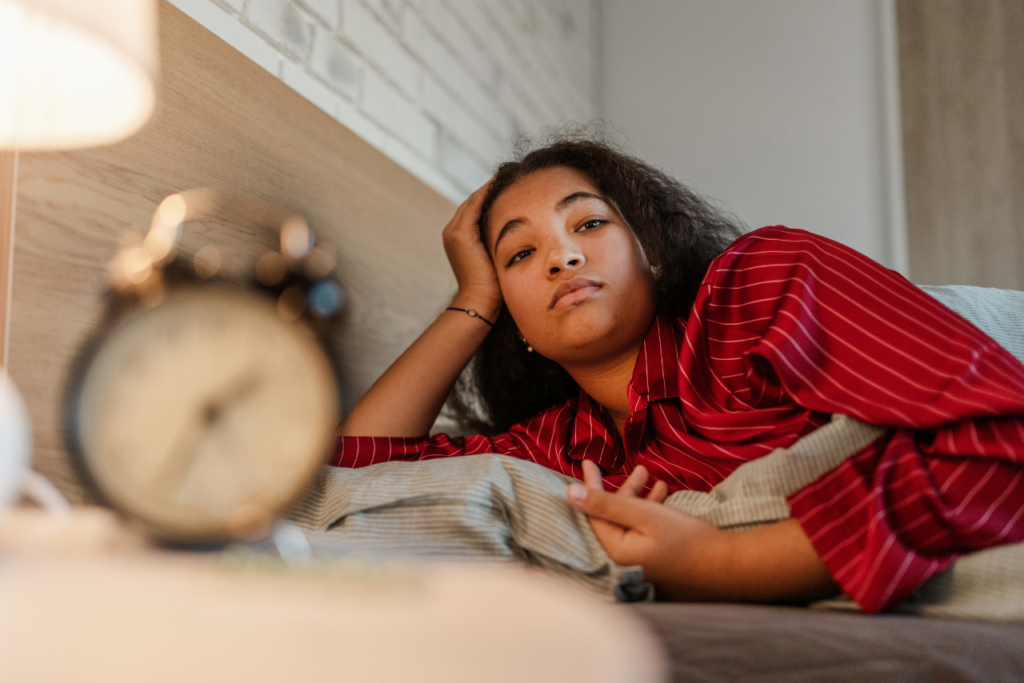
Can gabapentin help you sleep? This prescription medication has proved to be highly effective at easing pain and improving quality of life for people who have certain medical conditions – but does its list of potential benefits include alleviating insomnia?
What Is Gabapentin?
Doctors prescribe gabapentin, an anticonvulsant medication, to patients in the United States under several brand names, including Neurotonin, Gabarone, and Gralise.
They typically prescribe gabapentin to people experiencing one of the following:
- Partial seizures
- Postherpetic neuralgia (a painful burning sensation that occurs in the aftermath of shingles)
- Restless leg syndrome
Gabapentin works by reducing the ability of neurotransmitters to send messages throughout the central nervous system. Patients can take the drug in capsule, tablet, or liquid form.
According to the U.S. Drug Enforcement Agency (DEA), pharmacies in the U.S. filled 70.9 million prescriptions for gabapentin in 2021. This represented an increase of more than 100% from 2011, when 33.4 million gabapentin prescriptions were filled.

Can Gabapentin Help You Sleep?
Gabapentin is not marketed as a sleep aid, but drowsiness is one of more common side effects that people experience when they use this medication. This prompts a few questions, including Can gabapentin help you sleep? and Do doctors ever prescribe gabapentin to treat insomnia?
Let’s address these questions one by one.
- Can gabapentin help you sleep? Yes, it can. As reported in a small study that was published in the March-April 2010 edition of the journal Clinical Neuropharmacology, “Gabapentin enhances slow-wave sleep in patients with primary insomnia. It also improves sleep quality by elevating sleep efficiency and decreasing spontaneous arousal.”
- Do doctors ever prescribe gabapentin to treat insomnia? The answer to this question is also yes. Though treating insomnia is not one of the primary purposes of this medication, physicians can (and do) prescribe it on an off-label basis to help people sleep.
It’s important to note that “off-label” does not imply that doctors who prescribe gabapentin for insomnia are somehow using this medication improperly. It simply notes that insomnia is not one of the disorders that the Food and Drug Administration (FDA) has specifically approved gabapentin to treat. Off-label uses of gabapentin and other medications are legal, ethical, and common.
Is Gabapentin Safe?
Every prescription medication offers benefits and poses risks. In the case of gabapentin, the following are examples of the most common side effects:
- Dizziness
- Drowsiness
- Dry mouth
- Nausea
- Diarrhea
- Swelling in the legs
- Impaired coordination
- Trembling or shakiness
- Involuntary rapid eye movements
- Blurred vision
- Confusion
- Anxiety
- Depression
Of course, a person’s risk of serious side effects can increase considerably if they fail to follow their doctor’s directions, or if they intentionally abuse gabapentin for recreational purposes.
Can Gabapentin for Sleep Lead to Potential Problems?
While gabapentin can be effective for improving sleep quality in some individuals, it’s essential to recognize that using this medication may also introduce certain risks. Many patients report experiencing side effects such as dizziness, drowsiness, and impaired coordination. These side effects can significantly impact daily functioning, leading to difficulties in tasks that require alertness and concentration, such as driving or operating machinery.
Additionally, while gabapentin is commonly prescribed off-label for sleep issues, this practice raises important concerns about its long-term safety and potential for dependency. The effects of prolonged use are still being studied, and patients may not fully understand the implications of taking gabapentin regularly for sleep.
Moreover, there is a risk of developing tolerance, which means that over time, individuals might need to take higher doses to achieve the same sleep-enhancing effects. This can lead to a cycle of increased usage, which heightens the risk of withdrawal symptoms if the medication is suddenly stopped.
Given these factors, it’s crucial for patients to have open discussions with their healthcare providers. By weighing the benefits against the potential risks, individuals can make informed decisions about using gabapentin for sleep. This ensures that it is utilized safely and appropriately in their treatment plans, addressing their specific sleep concerns while minimizing any adverse effects on their overall health and well-being.
Can I Become Addicted to Gabapentin?
As described in a March 2016 review in the journal Addiction, when gabapentin was initially approved by the FDA in 1993, experts believed that it posed little risk of abuse.
However, in the years since the medication’s release, multiple studies suggest that about 1% of the general population has engaged in gabapentin abuse. Among people who have received care for opioid addiction, the rate of gabapentin abuse may be as high as 40%.
Surveys indicate that common reasons for gabapentin abuse include:
- Recreational drug abuse
- Self-medicating symptoms of anxiety or other mood disorders
- Self-medicating physical pain
- Attempting to enhance the effects of other substances
- Managing withdrawal symptoms from other drugs
- Intentional self-harm
Most cases of gabapentin abuse (as many as 93%, according to one of the studies cited in the 2016 review) also involve other drugs, primarily alcohol and opioids.
Some people who have abused gabapentin noted that the drug can cause a euphoric sensation that is similar to the effects of opioids. Thankfully, gabapentin is not as addictive as opioids – but this doesn’t mean that there is no risk of becoming dependent on this medication. The many potential negative effects of gabapentin abuse include addiction.
Prolonged abuse of gabapentin can lead to the development of tolerance. This means that individuals may need to take larger doses to achieve the effects they are seeking.
If someone who has been using this medication for an extended period suddenly stops, they can experience withdrawal symptoms. These symptoms can be both physical and psychological, making it difficult to discontinue use without proper support. Tolerance and withdrawal are two classic signs of addiction.

Find Gabapentin Addiction Treatment in Atlanta
Atlanta Integrative Psychiatry offers a dynamic array of innovative evidence-based services for adults who have been living with mental illnesses and dual diagnosis disorders, including dependence on gabapentin and other prescription mental health medications.
Here’s a version with shorter, more digestible sentences:
At our outpatient treatment center in Atlanta, Georgia, we provide comprehensive and personalized care. Our approach addresses the biological, psychological, and social aspects of mental illness and co-occurring addiction.
We understand how these concerns can impact a person’s life in many ways. Therefore, we are committed to developing customized solutions that empower our patients. Our goal is to help them achieve true and lasting healing in mind, body, and spirit.
To learn more about our programs and services, or to schedule a free assessment, please visit our Appointments page or call us today. We look forward to answering all your questions and helping you decide if Atlanta Integrative Psychiatry is the perfect place for you.





